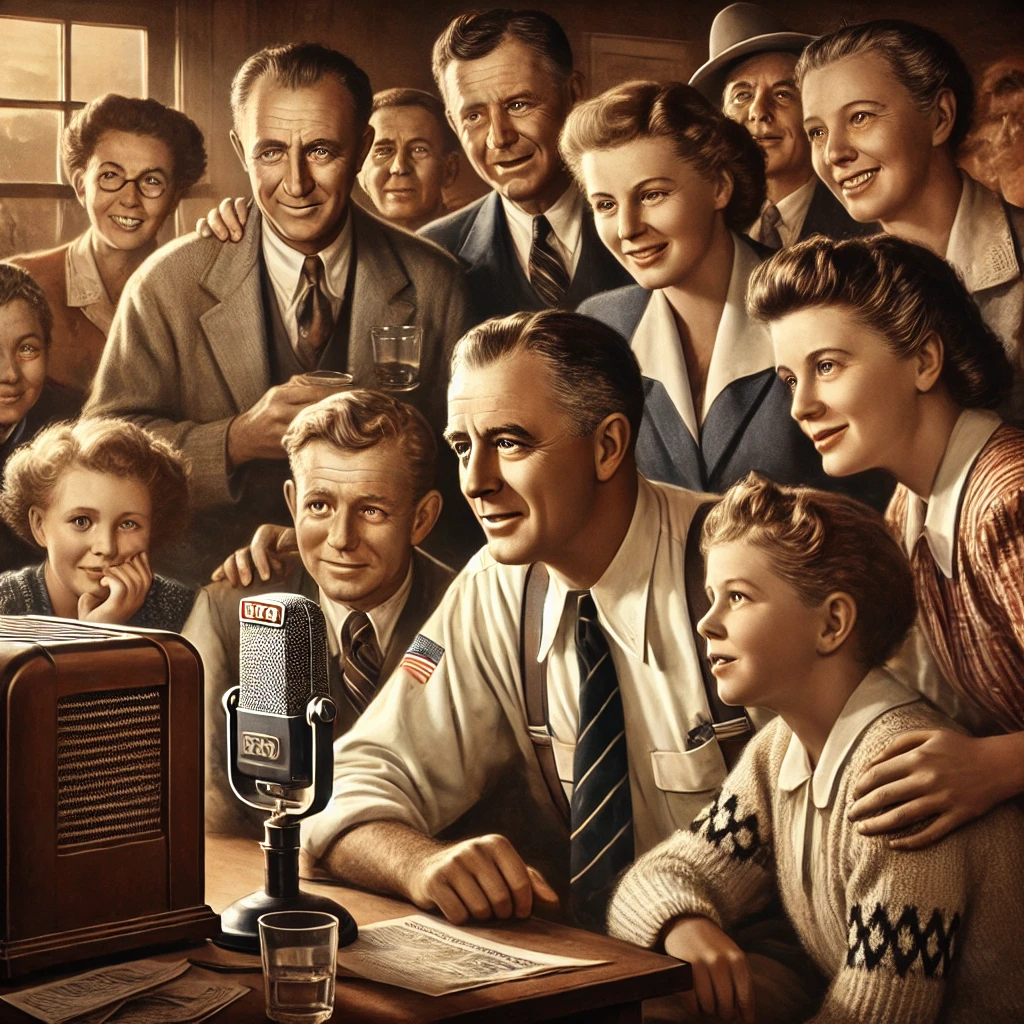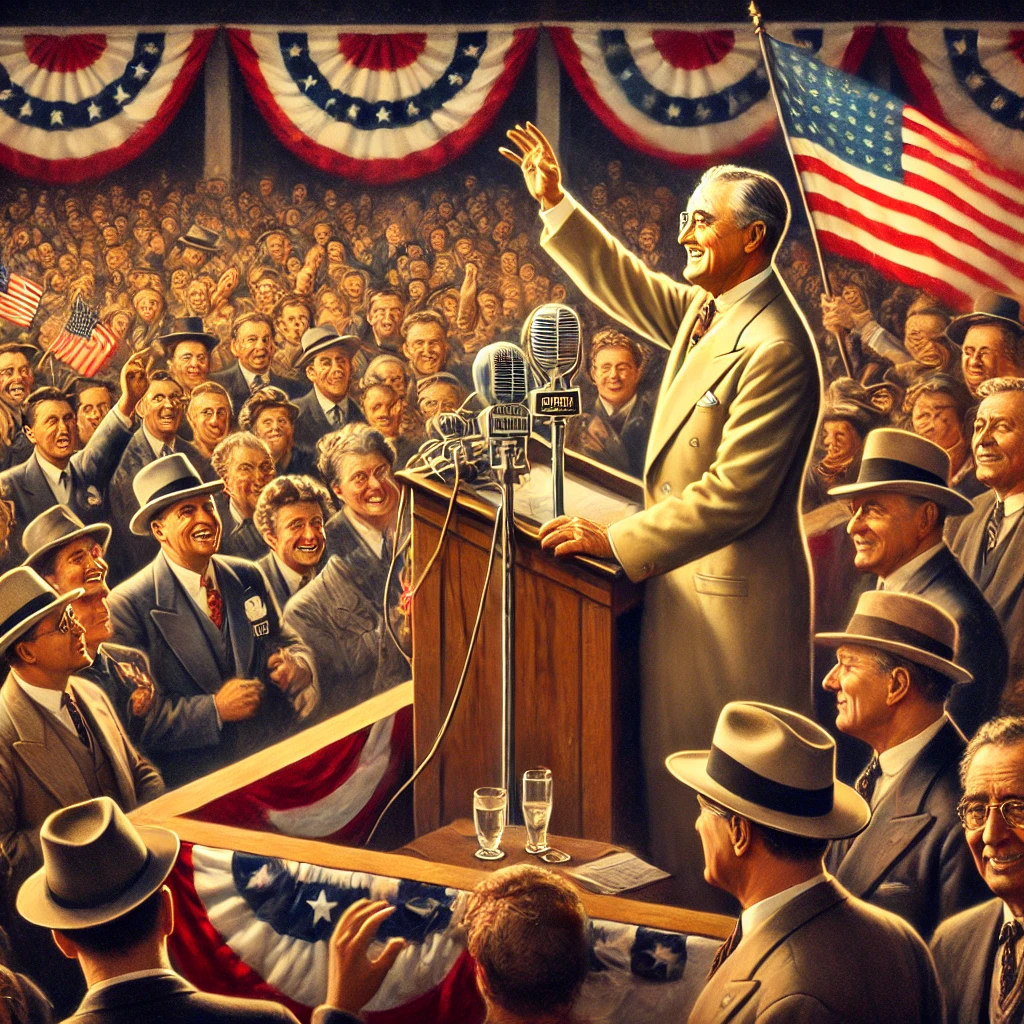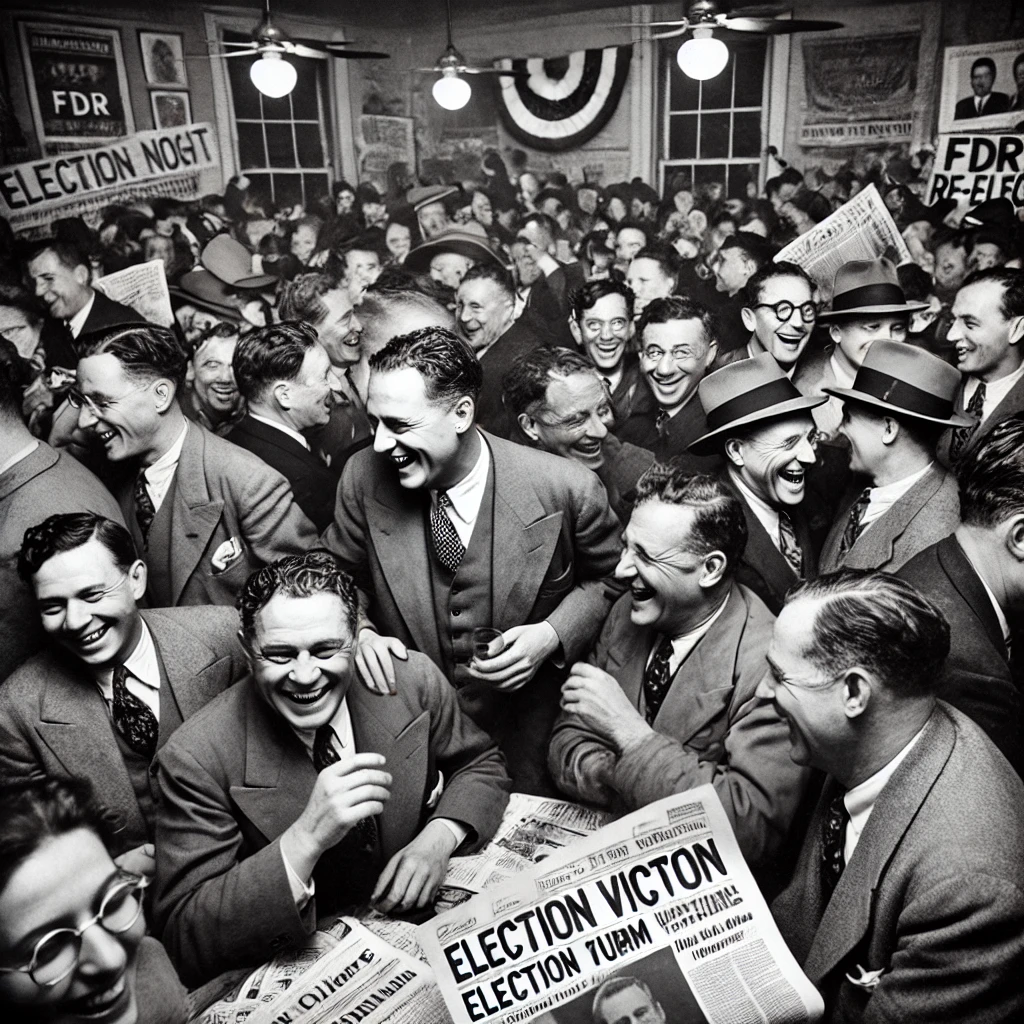On November 5, 1940, Franklin D. Roosevelt (FDR) made history by becoming the first U.S. president to be elected for a third term. This unprecedented achievement came during a tumultuous period in American history, marked by the lingering effects of the Great Depression and the looming threat of World War II. Roosevelt’s victory not only underscored his popularity but also reflected the American public’s desire for continuity and strong leadership in uncertain times.

The Context of the 1940 Election
The 1940 presidential election occurred against the backdrop of significant national and international challenges. While the United States was still grappling with the economic ramifications of the Great Depression, Europe was engulfed in conflict as World War II escalated. Roosevelt had been in office since 1933, implementing his New Deal programs aimed at economic recovery. By 1940, many Americans felt that his leadership was essential for navigating the complex issues facing the nation.
Roosevelt’s decision to run for a third term was controversial. Prior to his candidacy, the tradition established by George Washington of serving two terms was widely respected. However, the extraordinary circumstances of the time led FDR to believe that his experience was crucial for the country. The Democratic Party supported his bid, and he faced a relatively weak Republican opponent, Wendell Willkie, who struggled to gain traction in a nation divided over the issues of war and peace.

A Historic Victory
The election results on November 5, 1940, reflected Roosevelt’s strong support among the electorate. FDR won a decisive victory, securing 84.5% of the electoral vote and garnering more than 27 million popular votes compared to Willkie’s 22 million. This resounding endorsement of Roosevelt’s leadership affirmed the public’s trust in his ability to guide the nation through challenging times.
Roosevelt’s campaign focused on his accomplishments and the need for stability in leadership. He emphasized the importance of continuing New Deal policies while also addressing the increasing global tensions. His ability to connect with voters, combined with his effective communication skills, helped solidify his position as a leader during one of America’s most critical junctures.

The Significance of a Third Term
Roosevelt’s re-election for a third term was groundbreaking, as it altered the landscape of American politics. His presidency during this period included significant involvement in World War II, where he played a vital role in shaping U.S. foreign policy. He famously declared that America would become the “arsenal of democracy,” emphasizing the nation’s commitment to supporting allies against fascism.
In response to concerns about the implications of a third term, Congress later passed the Twenty-Second Amendment in 1951, which limited presidents to two terms. This amendment was a direct result of the unprecedented circumstances surrounding FDR’s election and the desire to prevent any future president from holding office for an extended period.
Lasting Legacy
Franklin D. Roosevelt’s election for a third term remains a significant moment in U.S. history, reflecting both the challenges of the era and the resilience of the American people. His leadership during a time of crisis and his ability to inspire hope and confidence left an indelible mark on the nation. FDR’s presidency helped lay the foundation for a more active role of the federal government in economic and social issues, a legacy that continues to influence American politics today.
As we look back on November 5, 1940, we remember FDR’s unprecedented achievement and the context in which it occurred. His ability to lead through adversity, adapt to changing circumstances, and maintain public trust are qualities that resonate with contemporary leaders and citizens alike. Roosevelt’s historic third term serves as a reminder of the importance of strong leadership in times of uncertainty and the enduring spirit of democracy in the United States.
The re-election of Franklin D. Roosevelt on November 5, 1940, marked a pivotal moment in American history, as he became the first president to serve three terms. This event not only reshaped the political landscape but also highlighted the necessity of steady leadership during turbulent times. Roosevelt’s legacy as a leader who navigated the complexities of war and economic recovery continues to inspire generations, reminding us of the power of resilience and the ongoing pursuit of progress in the face of adversity.
